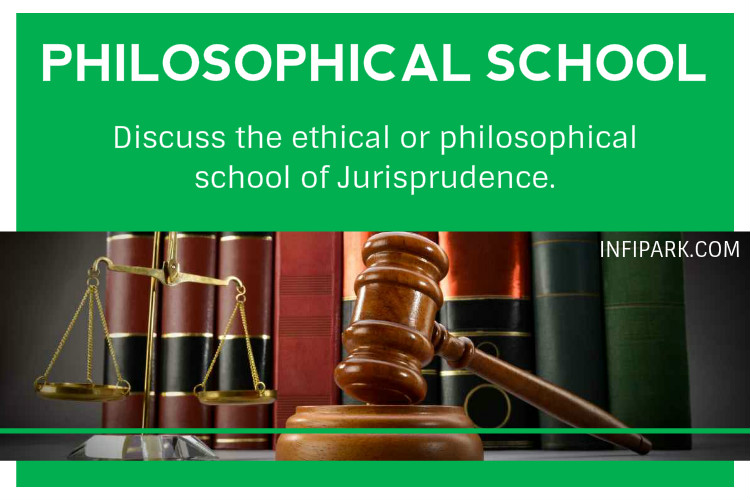Immanuel Kant (1724-1804) developed his metaphysical method further and held that ethics and law are not one and the same thing. According to him, ethics relates to man’s spontaneous acts while law deals with all those acts to which a man can be compelled. Ethics, thus, deals with the inner life of the individual; law on the other hand, regulates his external conduct. Kant emphatically pointed out that an organised society should not exercise compulsion to make man virtuous, but compulsion should be exercised only to regulate his external conduct. In his view, “law is the sum total of the conditions under which the personal wishes of man can be reconciled with the personal wishes of another man in accordance with a general law of freedom.”
Kant pointed out that law, to be acceptable to people in general, should have within it an element of justness. According to him legislation could be effective only when it represents the united will of the people. He upheld freedom of speech as a pre-requisite to of a good government. As regards the function of the State, Kant opined that it should confine itself to maintenance of law and order and administration of justice. The citizens should have the freedom of criticising the government but they should never seek to resist it. He believed in the universal world order and equality and freedom of States. He, however, wanted that international law, to be effective, must have an international authority superior to the member States.
Fichte deduced the legal theory from the inherent self- consciousness of a reasonable man. He contended that freedom is necessarily a relative term depending on mutual personal relations which regulate human conduct. It is the moral duty of every person to respect the ,libertyof others, but a legal duty to do dependent on reciprocity. According to Fichte, the State should protect only those rights of individual which are necessary conditions of his personal existence. He emphasised that law must be directed to ensure justice.
Hegel (1770-1831) carried further Kant’s doctrine of freedom of will. In his opinion, the purpose of making of law is to reconcile the conflicting egos in society. This is achieved by the merger of self-centered consciousness of each ego resulting into universal consciousness. In other words, legal right is the objective realisation of the fact that the freedom of each ego is limited by like freedom of other’s egos. Thus, Hegel believed that various manifestations of social life including law are nothing but the result of an evolutionary dynamic process. He opines that the idea of freedom has dominated man’s mind throughout his struggle for existence.
According to Hegel, the State is the synthesis of family and civil society. It is the unity of the universal principle of family and the particular principle of civil society. It is thus an expression of the individual’s freedom in the form of universal self. He emphasised three kinds of functions of the State, namely :
(1) the universal
(2) the particular, and
(3) the individual aspect.
The universal function-consists of formulation of laws, its particular function includes application of law to special cases, while the individual aspect is embodied in the monarch.
Hegel’s most important contribution to legal philosophy is the development of the idea of evolution. He contended that various manifestations of social life including law, are the product of an evolutionary process. This process, operates itself in form of thesis, antithesis and synthesis. The human spirit sets a thesis, which becomes a leading idea of a particular time. In course of time, a wave of objections and criticism generates against this popular idea i.e., thesis, thus an anti-thesis is set-up and a synthesis develops out of the ensuing conflict between this thesis and antithesis in an effort to reconcile them. This process repeats time and again as a historical phenomenon.
Kohler (1849-1919) was much influenced by the Hegelian legal theory. He conceded to Hegel’s idea of universal civilization but did not agree with the view that there is an eternal law of universal body of legal institutions uniformly suited to all the societies. What maybe good for one particular society may not be necessarily so for the other. He emphasised that human society is ever changing and progressing and. law is a means to respond favourable to this changes. Kohler defined law as. “the standard of conduct which in consequence of the inner impulse that urges man towards a reasonable form of life, emanates from the whole„ and is forced upon the individual.” In his book Philosophy of law, Kohler contemplates, vitalising of culture or civilization and this end is achieved through the instrumentality of law.
Del Vecchio developed a theory of law similar to Sammler’s legal philosophy but quite independent of it. He was a great legal thinker of Italy and his writings were known for his deep knowledge of philosophy, law and history. He believed that human mind can discover rales of justice unaided by positive law. He was thus convinced about the existence of the natural law and treated positive law as an hioderence in-the pr6cess of legal reforms,. In his view, the logical form of law was more comprehensive than the sum of judicial propositions.
The concept of law carries with it an element of neutrality and therefore it is not proper to draw a distinction between good and bad law or just and unjust law.
Del Vecchio treated law as a phenomenon of nature and an expression of human liberty directed towards a definite purpose. For him, justice was an ideal concept postulated by the inner conscience of man and a quest for equal freedom of mankind.
Implications of the Ethical Legal Philosophy
The cumulative effect of the legal philosophies developed by historical and ethical jurists and the impact of analytical positivism of Austin, generated a new wave of thinking about the true nature, content and purpose of law and its relation with the State. Analytical school had ignored the social aspect of law and denounced its ethical basis. Instead, it emphasised only on two aspects of law, namely, its coercive force and omnipotence of the sovereign authority.
Dr. Jethro Brown who was a neo-Austinian, gave a new content to Austin’s definition of Law. He interpreted law, “as an expression of the. general will a ffnning an order which will pe enforced by the organised might of the State and directed to the realisation of some real or imaginary good”. Thus, he gave an ethical element to the definitior of law which Austin had ruthlessly denied. Jethro Brown conceivci that law -is not merely a command of the sovereign but it proceeds from the general will of the people and thus contains within it an element of socio- ethical purpose.
Salmond also contended that cutomary law is material source’ of law and that international iaw is not a mere positive morality but it is a species of conventional law. It is, therefore, evident that he also acknowledged the role of historical and philosophical legal thinking in the formulation of law and legal precepts. Salmond further remarked that a book of ethical jurisprudence may concern itself with all or any of the matters including the concept of law, the relation of law and justice,the manner in which law. fulfils its purpose of maintaining justice, the distinction between the sphere of law and the subject-matter of law and other branches of right and the ethical significance and validity of those legal concepts and principles which are fundamental for the proper subject-matter of analytical jurisprudence. He pointed out that the scope of ethical jurisprudence does not extend beyond general theory of justice in “relation to law and the matters such as criticism of the existing legal system, or contemplation of an ideal legal system etc., pertain neither within the scope of jurisprudence nor to legal philosophy, but to the science of legislation.
It may be concluded that philosophical school of jurisprudence is mainly concerned with the, “development of the ideal of justice as a ethical and moral phenomenon and its manifestation in the principles applied by the courts.











